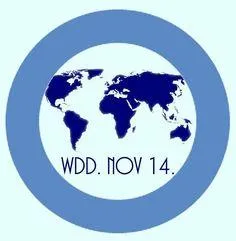About 90 % of CiudadRealeños with diabetes have experienced at least a nocturnal hypoglycemia.
Night hypoglycemia are one of the main concerns of people living with diabetes, so many of them must interrupt the dream during the night, at least once, to measure their glucose levels.
Glucose control at night is one of the main concerns among people living with diabetes.Specifically, "nocturnal hypoglycemia affects 90% of patients with type 1 diabetes, with a frequency of two weekly events," explains Dr. Jesús Moreno, a specialist in endocrinology and nutrition at the General University General Hospital of Ciudad Real.
To improve and update knowledge about hypoglycemia, medical specialists in Castilla La Mancha have met in the forum detection of hypoglycemia with the Freestyle® Glucose Flash Flash system free of ABBOTT, a 360º vision.In the meeting, specialists have taken the opportunity to learn about one of the latest advances for diabetes control, the freestyle® free glucose monitoring system.It is a pioneer technology that allows to know the glucose levels in people with diabetes without the need to prick their finger routinely.
"Hypoglycemia- a decrease in sugar level- can be a consequence of disease-dependent factors (type 1 diabetes, for example), nutritional (eating disorders) or excesses in the supply of insulin dose or physical exercise practice,"Dr. Jesús Moreno argues within the framework of the medical meeting held at the INTUR Alcázar Hotel in San Juan, in Ciudad Real.“The appearance of hypoglycemia is a factor that predisposes, in a very high percentage, to suffer cardiovascular pathologies and increases the risk of mortality.In addition, they produce an immediate physical and psychological deterioration that most takes more than an hour to recover, ”adds the doctor.
Hypoglycemia can occur frequently both in patients with type 1 or type 2 diabetes. According to a survey in 79 hospitals in Spain and 352 patients with diabetes, 78, 7% of participants with type 1 and type 2 diabetes suffered a nocturnal hypoglycemia.
One of the greatest concerns of a patient with diabetes are hypoglycemia that occur at night.During the course of the survey (14 days), at least half of the patients recorded 3 or more episodes of nocturnal hypoglycemia.No differences were observed between the average of the hypoglycemia episodes according to the type of diabetes.
new advances in glucose measurement
The free freeyle system has been developed to change the way people with diabetes measure their glucose levels and, ultimately, to help them improve their health.Its ease of use makes more information from glucose levels throughout the day, making control more accurate.
According to the survey in Spain, 78.7% of participating patients detected episodes of night hypoglycemia thanks to the use of the free freestyle system and the educational tool for the diabetic patient2.The system also provided information to health professionals about hypoglycemia episodes not previously detected, allowing them to make better decisions about patient treatment.During the 14 days of the survey, patients, both with type 1 diabetes and type 2, experienced a reduction in hypoglycemia episodes with the use of free freestyle.
The incidence in diabetes has increased in recent decades, both in adults and children.In fact, according to the International Diabetes Federation (FID)*, 21,600 are diagnosed annuallynew cases
And here my question: if I am not mistaken, to know the level of glucose with the free you have to pass the meter ahead of the patch, no?, if this is so, I do not understand how it warns of a night hypoglycemia... Can someone clarify it to me?






